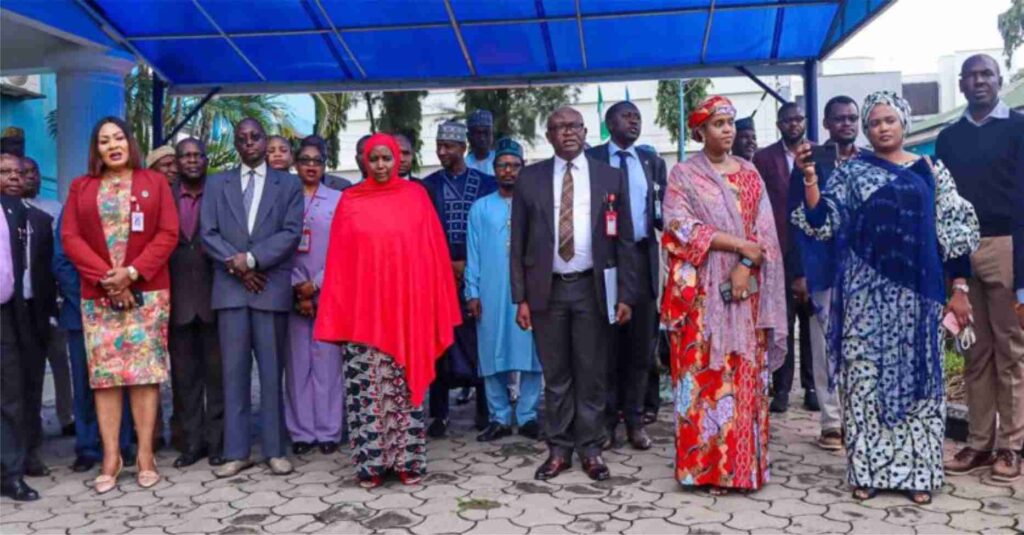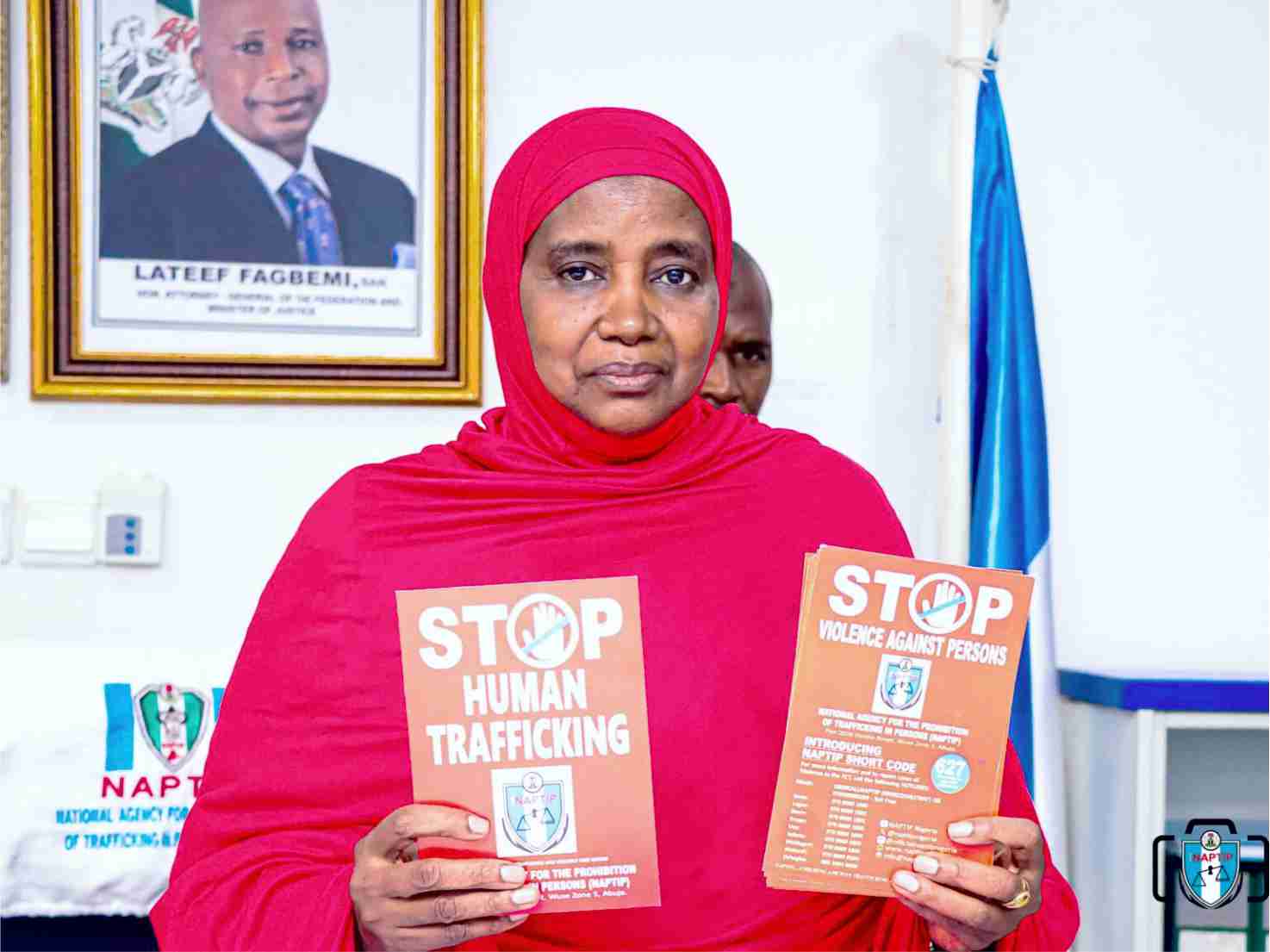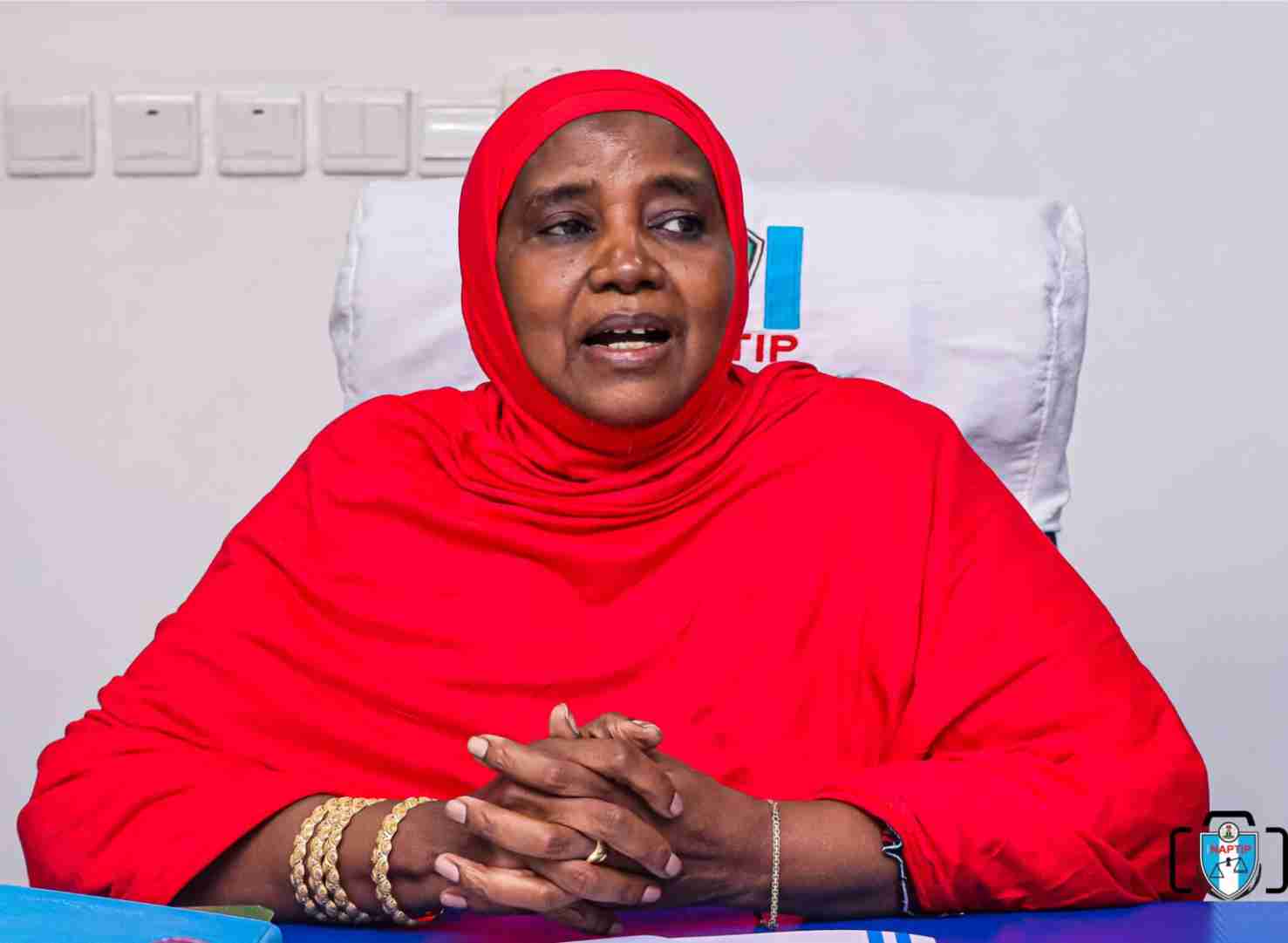Human trafficking remains one of the gravest violations of human rights in the 21st century. It is a global crisis that affects millions of individuals, robbing them of their dignity, freedom, and future. In Nigeria, the National Agency for the Prohibition of Trafficking in Persons (NAPTIP) stands at the forefront of the fight against this heinous crime, serving as a beacon of hope for countless victims and a formidable force against perpetrators. Established in 2003, NAPTIP has evolved into a critical institution within Nigeria’s legal and law enforcement framework. This article explores the agency’s creation, mandates, achievements, challenges, and the vital role it plays in combating human trafficking and modern slavery.
NAPTIP was established as a direct response to Nigeria’s commitment to international protocols and conventions aimed at combating trafficking in persons. The agency was created under the Trafficking in Persons (Prohibition) Enforcement and Administration Act of 2003, a landmark legislation that brought Nigeria’s legal framework in line with global anti-trafficking standards, particularly the United Nations Palermo Protocol.
The agency’s core mandate includes the prevention of human trafficking, the prosecution of offenders, the protection and rehabilitation of victims, and the promotion of public awareness. It operates under the Federal Ministry of Humanitarian Affairs, Disaster Management, and Social Development and collaborates with various national and international stakeholders.
NAPTIP’s activities are guided by a multifaceted approach to tackling human trafficking:
Prevention: The agency focuses on preventing human trafficking through public education, advocacy campaigns, and community engagement. Its outreach programs aim to enlighten vulnerable populations about the tactics used by traffickers and the dangers of trafficking.
Protection: NAPTIP prioritizes the rescue, rehabilitation, and reintegration of trafficking victims. It operates shelters across Nigeria where victims receive medical care, counseling, legal assistance, and vocational training.
Prosecution: The agency’s legal arm works tirelessly to ensure that traffickers face justice. NAPTIP’s investigators and prosecutors are equipped to handle complex trafficking cases, often working in collaboration with other law enforcement agencies.
Partnership: Recognizing that human trafficking is a transnational crime, NAPTIP collaborates with international organizations, foreign governments, and non-governmental organizations (NGOs) to combat trafficking and provide cross-border assistance to victims.
Since its inception, NAPTIP has recorded significant milestones in the fight against human trafficking:
Rescue and Rehabilitation: The agency has rescued thousands of trafficking victims, including women, children, and men subjected to forced labor, sexual exploitation, and organ harvesting. Its shelters have become sanctuaries for victims seeking to rebuild their lives.
Prosecution Successes: NAPTIP has secured numerous convictions against traffickers, setting a precedent for strict enforcement of anti-trafficking laws. These convictions have served as a deterrent to potential offenders.
Awareness Campaigns: Through media campaigns, school outreach programs, and community initiatives, NAPTIP has raised awareness about human trafficking, fostering a culture of vigilance and prevention.
Policy Development: The agency has played a pivotal role in shaping Nigeria’s anti-trafficking policies, including the amendment of the Trafficking in Persons Act to address emerging trends and challenges.
International Recognition: NAPTIP’s efforts have earned Nigeria recognition from the United States Department of State and other international bodies, highlighting the agency’s effectiveness and commitment. Despite its successes, NAPTIP faces numerous challenges that hinder its operations:
Resource Constraints: Limited funding and inadequate resources affect the agency’s ability to expand its operations and provide comprehensive support to victims.
Evolving Tactics of Traffickers: Traffickers continuously adapt their methods, exploiting technology and loopholes in border security to evade detection.
Public Apathy: Cultural norms and societal stigma often prevent victims from coming forward or seeking help, complicating rescue and rehabilitation efforts.
Cross-Border Jurisdiction: Human trafficking is a transnational crime, and jurisdictional limitations can impede NAPTIP’s ability to investigate and prosecute cases involving foreign nationals or operations beyond Nigeria’s borders.

Lawyers play a crucial role in supporting NAPTIP’s mandate. From providing pro bono legal services to victims to advocating for stronger anti-trafficking laws, the legal profession is indispensable in the fight against trafficking. Legal practitioners can also assist in drafting legislation, conducting research, and representing victims in court.
To enhance its impact, NAPTIP must address its challenges through strategic interventions:
Increased Funding: The government must prioritize funding for NAPTIP to strengthen its capacity for victim support, investigation, and prosecution.
Technological Advancement: Investing in technology for surveillance, data collection, and case management can enhance the agency’s efficiency.
Strengthened Partnerships: Expanding collaborations with international organizations and local NGOs can provide additional resources and expertise.
Legislative Reforms: Continuous review and amendment of anti-trafficking laws are necessary to address emerging trends, such as online trafficking.
Public Engagement: Sustained awareness campaigns can foster community support and encourage victims to seek help.
The National Agency for the Prohibition of Trafficking in Persons has proven to be a formidable force in Nigeria’s fight against human trafficking. Its unwavering commitment to justice, protection, and prevention has transformed the lives of many victims and sent a strong message to traffickers. However, the battle against human trafficking requires collective effort. By supporting NAPTIP through legal, financial, and moral means, stakeholders can contribute to a society free from the shackles of modern slavery. Together, we can ensure that the agency continues to shine as a beacon of hope for the vulnerable and a symbol of justice for the oppressed.



